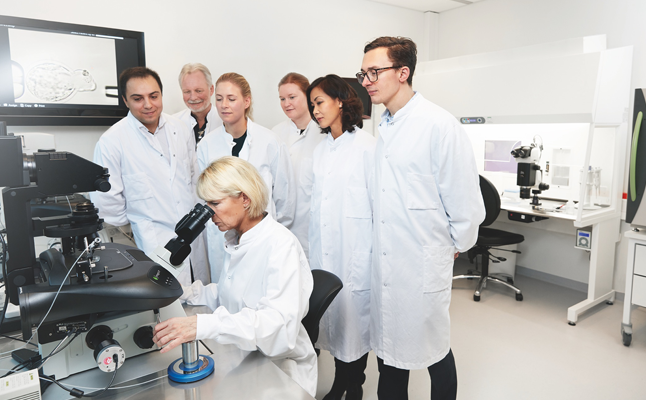Honest conversations with clinics to help increase the standards of fertility care

Honest conversations with clinics to help increase the standards of fertility care
By Rachel Chin – Clinical Applications Manager APAC, CooperSurgical.
The use of assisted reproductive technologies is growing around the world. With the rise of female and male infertility due to various factors, global demographics have changed. This shift is challenging fertility outcomes and calling for new clinical approaches to fertility treatment. In this article, Rachel Chin from CooperSurgical discusses her belief that standardized workflows in clinics can help raise the standards of treatment for patients and optimize fertility outcomes.
As Clinical Applications Manager, Rachel works as part of a supporting team of embryologists from CooperSurgical with the aim of assisting clinics with education and troubleshooting. Rachel’s background as an embryologist and laboratory manager means that she is familiar with the challenges that IVF practitioners face on a day-to-day basis and is able to support fertility clinics to help them strengthen their practices.
When visiting the clinics I support in the Asia-Pacific region, a common challenge clinicians and embryologists mention is that their patients are becoming more diverse. They see older people, young people, singles, couples, people identifying as LGBTQ – and all of these different patient groups have different needs.
The different needs also mean different standards because fertility care is not one size fits all. Through standardization, we have the opportunity to raise standards across the board. That means that no matter what group you belong to, you should be able to expect a high-quality outcome. Everyone going through fertility treatment should have access to the best standards of treatment to achieve optimal outcomes. That is the true mark of standardization.
“Everyone going through fertility treatment should have access to the best standards of treatment to achieve optimal outcomes. That is the true mark of standardization.”
Clinics can lack much-needed support
In many ways, the fertility care market is still quite fragmented. Not every clinic is part of a corporate chain or an organization that can support it and help it keep up with the latest trends. Even though they strive to include the latest research and procedure updates, some clinics have limited resources and, therefore, struggle to live up to their patients’ high expectations.
Through my role, I try to have honest conversations with clinicians, embryologists and nurses to properly assess their needs and provide them with the right information or solutions. It’s not always easy. Having done things in a particular way for many years, some clinics sometimes need a little help to move forward and implement new practices, methods and technologies.
“Having done things in a particular way for many years, some clinics sometimes need a little help to move forward and implement new practices, methods and technologies.”

Image by Rachel Chin
Working closely with clinics to troubleshoot problems
Recently, I visited a clinic in my region that was having problems with certain culture media not being effective. Over the course of several meetings, I helped them troubleshoot and discover that they were not working with the optimal temperatures and, in some cases, the CO2 concentrations during incubations were causing problems. These discoveries made it possible for them to make the right corrections and start achieving better fertility outcomes.

Image by Rachel Chin
I think that is a great example of practitioners being open-minded and willing to change and how we can use education, training and knowledge-sharing to increase the standards of fertility treatment in clinics. When I meet that open-mindedness, I feel like I am making real progress, utilizing the wealth of evidence-based information and education I have access to combined with the benefit of knowing what the correct information is. This can be a big challenge for many of the clinics.
Therefore, my goal is always to strengthen the core of the clinics’ practices and provide them with a solid foundation with the right building blocks in place, so that they can consistently deliver high-quality results and improved outcomes for patients.
“My goal is always to strengthen the core of the clinics’ practices and provide them with a solid foundation with the right building blocks in place.”
My dream is changing the standards of fertility care – and I think we can definitely achieve it – is for fertility clinics to be able to provide safe and evidence-based treatment that offers precise and consistent fertility outcomes for patients. A standard that covers every type of patient and ensures the optimal outcome in every case.
I think it is also important that we work together. To create a standard for good laboratory practices that follow an international consensus to ensure that workflows are standardized and that all clinics and laboratories have something to benchmark against wherever they are in the journey.
“After all, the patients are the ones we are doing this for.”
Patients that come to a clinic have a dream of having a healthy baby. That’s what we should all be working towards. After all, the patients are the ones we are doing this for.

 My Clinic is in the United States
My Clinic is in the United States My Clinic is in Canada
My Clinic is in Canada

